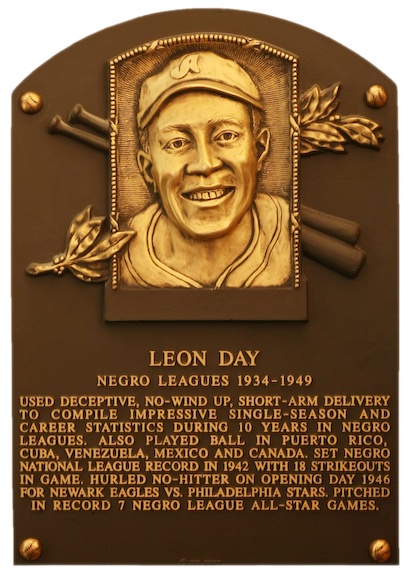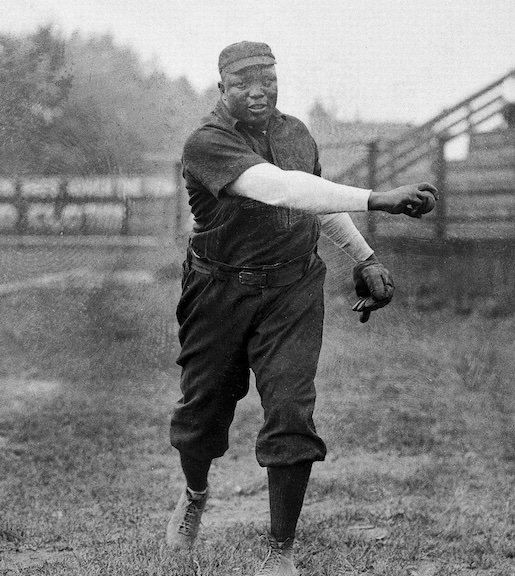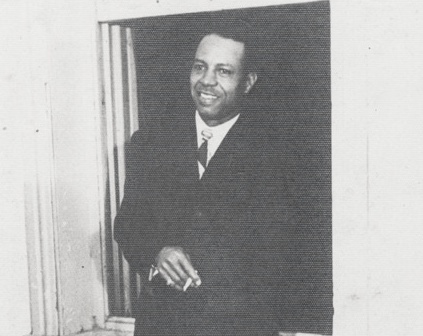
For more than a half-century, the Negro League teams that called New Jersey home featured some of the finest pitchers in baseball. When Major League Baseball recognized a select number of black baseball leagues as “major,” it literally rewrote its own record books. Among the dozen-plus no-hitters that are being recognized is one pitched in New Jersey: Leon Day’s opening day no-no for the Newark Eagles against the Philadelphia Stars at Ruppert Stadium in 1946. The recognition of Day’s remarkable feat comes because it was an official contest between two league teams.
Of course, Negro League clubs played as often as possible as they toured from town to town; they took part in many more games against local semipro and pro teams than they did against league opponents. Stats from these “non-championship” games were not part of the standings and are not recognized by MLB.
However, that does not mean they “didn’t count.” A pitcher taking the mound and getting through nine innings without yielding a hit is a rare occurrence—and certainly one that fans lucky enough to witness never forget.
How rare? In New Jersey, only six Negro League pitchers other than Leon Day pulled this off. The first was Shep Trusty of the Trenton Cuban Giants. On March 4, 1887, Trusty faced a white team comprised of a few second-stringers from the Philadelphia Athletics and local semipro stars. The A’s main squad was in Baltimore playing the Orioles. Trusty won, 16–0 without allowing a runner to reach base safely. Trusty was one of the finest pitchers of the 1880s—white or black. A year earlier, he had pitched the Cuban Giants to victory over the Cincinnati Reds in an exhibition game—a pivotal event in the history of black baseball.

The next two no-hit masterpieces hurled in the Garden State were the work of the immortal Rube Foster (left) of the Philadelphia Giants. On July 25, 1904, he defeated a very strong Trenton YMCA semipro team on their home field without a hit, 1–0. The following summer, on August 22, the Giants rolled into Camden to face a quality semipro nine at the Camden Base Ball Grounds. It was another close victory (3–0) and another no-hitter for Foster, who was credited with six in his career.
Semipro baseball teams in this era were distinguished from fully professional teams by quality to some degree, but mostly by the fact that their players divided gate receipts instead of playing for a salary. A talented ballplayer, black or white, lucky enough to enjoy gainful employment, was unlikely to give up that security to play ball full-time. Semipro teams from industrial towns tended to be of especially high quality.
Cannonball Dick Redding authored the next New Jersey no-no, pitching for the visiting Lincoln Giants against the Cuban Stars of Atlantic City. The game was a 1–0 battle waged on August 28, 1912, in Inlet Park. Seven years later, on the Sunday of July 4th weekend, the same venue played host to a no-hitter by Jess Hubbard of the Atlantic City Bacharach Giants. They downed the Logan Squares, a white semipro team from Chicago.

Another white independent outfit, the House of David, also fielded a highly competitive and entertaining baseball team. On July 13, 1935, Terris “Speed” McDuffie (right) of the New York Black Yankees faced the famously bearded ball team in Paterson‘s Hinchliffe Stadium. He allowed three baserunners but no hits, winning 8–0.
The final New Jersey no-hitter before Day’s masterpiece in 1946 was delivered by Jimmie Hill of the Newark Eagles. In the second game of a June 6 Sunday doubleheader, he beat the Black Yankees, 3–0. The game was called after seven innings.
Two other “New Jersey no-hitters” stand out in that they came in official league games and thus are now part of the MLB record book. They were authored by pitchers from the Bacharach Giants but came in enemy territory. In 1922, Nip Winters beat the Indianapolis ABC’s 7–1 at Athletic Park in Kokomo, Indiana. In 1926, Red Grier blanked the Chicago American Giants 10–0 in a game played at Maryland Baseball Park in Baltimore. Neither the ABC’s or American Giants managed a single hit.